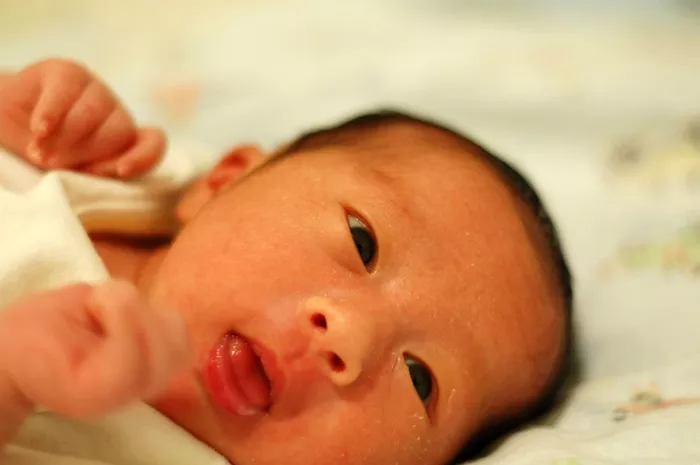Bilirubin is a yellow substance. It forms during the normal breakdown of red blood cells. Newborns have high levels of red blood cells. Their bodies need to break these cells down. The liver processes bilirubin and it exits the body through stool.
Causes of High Bilirubin in Newborns
Increased Red Blood Cell Breakdown
Newborns have a high count of red blood cells. These cells break down faster. This can lead to higher bilirubin levels.
Immature Liver Function
A newborn’s liver is still developing. It may not process bilirubin efficiently. This can cause a buildup in the blood.
Breastfeeding Jaundice
Breastfeeding can affect bilirubin levels. It is not usually a problem. Sometimes, poor feeding can increase bilirubin levels. Ensuring proper feeding helps manage this.
Hemolytic Disorders
Some newborns have blood type incompatibilities with their mothers. This can cause red blood cells to break down quickly. Examples include Rh and ABO incompatibility.
Genetic Factors
Certain genetic conditions affect bilirubin processing. For example, Gilbert syndrome can cause high bilirubin levels.
Symptoms of High Bilirubin in Newborns
Jaundice
The most common symptom is jaundice. This causes a yellow tint in the skin and eyes. It often starts in the face. It can spread to the chest, abdomen, and legs.
Lethargy
Newborns may become very sleepy. They may have difficulty waking up for feedings. This can lead to poor feeding and dehydration.
Poor Feeding
High bilirubin levels can make newborns feed poorly. They may suck weakly or refuse to feed. This can worsen jaundice.
High-Pitched Cry
Some babies may have a high-pitched cry. This is a sign of discomfort or neurological issues.
Hypotonia
High bilirubin can cause muscle weakness. Newborns may appear floppy and have poor muscle tone.
Complications of High Bilirubin in Newborns
Kernicterus
Kernicterus is a severe complication. It occurs when high bilirubin levels affect the brain. Symptoms include arching of the body, seizures, and hearing loss. Kernicterus can cause permanent brain damage.
Bilirubin Encephalopathy
This is an acute form of brain damage caused by high bilirubin. It can lead to permanent neurological damage if not treated promptly.
Neurological Impairments
Long-term effects can include motor delays and learning disabilities. Early detection and treatment are crucial to prevent these outcomes.
SEE ALSO: What Causes Low Bilirubin in Newborns?
Diagnosis of High Bilirubin in Newborns
Physical Examination
Doctors check for signs of jaundice. They examine the skin and eyes. The extent of jaundice can indicate bilirubin levels.
Bilirubin Tests
Blood tests measure bilirubin levels. These tests help determine the severity of jaundice. They also help monitor the effectiveness of treatment.
Transcutaneous Bilirubinometer
This device measures bilirubin through the skin. It is less invasive than blood tests. It is used for initial screening.
Other Tests
Additional tests may be needed. These include blood type tests and Coombs tests. They help identify underlying causes like hemolytic disease.
Treatment of High Bilirubin in Newborns
Phototherapy
Phototherapy is a common treatment. It uses blue light to break down bilirubin in the skin. This helps reduce bilirubin levels.
Exchange Transfusion
In severe cases, an exchange transfusion may be needed. This involves replacing the baby’s blood with donor blood. It quickly reduces bilirubin levels.
Intravenous Immunoglobulin (IVIG)
IVIG is used for hemolytic disease. It reduces antibody levels that cause red blood cell breakdown.
Enhanced Feeding
Ensuring proper feeding helps lower bilirubin. Breastfeeding should be encouraged. Sometimes, formula supplements are needed.
Treating Underlying Conditions
Addressing the cause of high bilirubin is essential. This includes treating infections and hemolytic diseases.
Prevention of High Bilirubin in Newborns
Early Feeding
Early and frequent feeding helps reduce bilirubin levels. It promotes stooling, which eliminates bilirubin from the body.
Monitoring
Regular monitoring of newborns at risk is crucial. This includes checking bilirubin levels and observing for jaundice.
Managing Maternal and Fetal Blood Type Incompatibility
Prenatal care includes blood type screening. Mothers at risk for Rh incompatibility receive Rh immunoglobulin. This prevents the formation of antibodies that attack the baby’s red blood cells.
When to Seek Medical Attention
Signs of Severe Jaundice
If jaundice spreads to the abdomen, arms, or legs, seek medical attention. This indicates high bilirubin levels.
Lethargy and Poor Feeding
If a newborn is very sleepy or feeding poorly, contact a healthcare provider. These are signs of worsening jaundice.
Changes in Behavior
Any changes in behavior, such as high-pitched crying or arching of the body, require immediate medical evaluation.
Conclusion
High bilirubin levels in newborns can lead to serious complications. Early detection and treatment are essential. Parents should be aware of the signs of jaundice and seek medical advice when needed. Proper prenatal care and postnatal monitoring help prevent severe outcomes. Ensuring adequate feeding and monitoring bilirubin levels can manage jaundice effectively.


